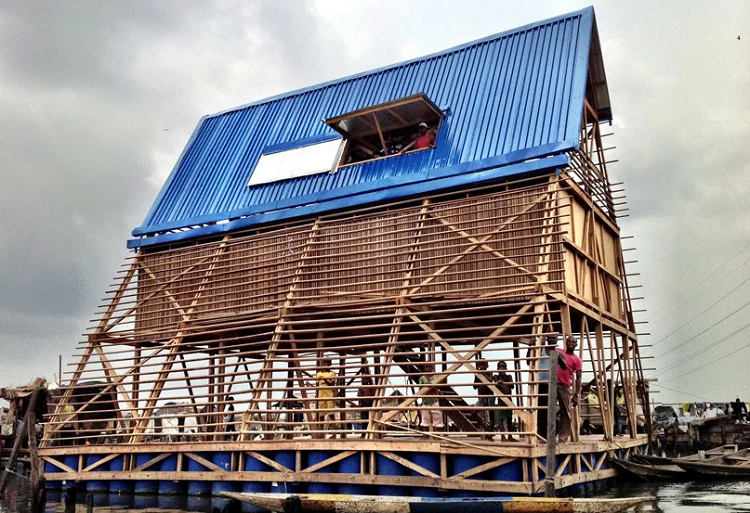
Planning on Building a House in Nigeria? | Make Sure You Read These Tips!
- Posted by Ikenna N.
- On July 11, 2025
- 7 Comments
- House, Land
Building a house in Nigeria has become a trend only associated with the rich over time. However, that is clearly a wrong assumption. Even the poor/average Nigerian has a house somewhere on the planet. The stats to that category may not be in excess of 20% of the Nigerian population, but that is really on a low. There are so many factors that prevent people from building their own homes.
It is so expensive to acquire land, building material costs are on the rise, it costs so much to pay professionals, etc. These are some of the reasons some sections of the population give when asked about their own property. Obviously, it takes a considerably huge amount of money to own a house, but it is not as much as you think.
However, building a house in Nigeria is not as cumbersome as some people see or make it be. It doesn’t cost that much to build your own house, it only takes proper planning to achieve it. This can be done on a budget, way lower than you think. I have therefore taken out time to list out a couple of processes involved in building a house in Nigeria.
Following these processes would surely give you an insight into achieving your dream home with satisfaction and on a budget.
Table of Contents
Tips/Processes To Building a House in Nigeria
These processes listed below are important and should be followed to the latter. That is the only to achieve maximum efficiency while getting your desired result. See the steps/procedures below:
Acquire a parcel of land
I am certain you already knew about this first step. Yes, you need to acquire a piece of land to build your own home. Getting a piece of land needs to be given careful thought, as so many factors are involved. Some factors to consider include location, climate, social amenities, community amenities, and so on.
These factors should be given serious thought as they affect the outcome of your desired home. In building a house in Nigeria, especially a conducive one, I would suggest you go for half a plot of land, at the very least. This, however, depends on your budget, and the type of property you want to put up. Always make sure you also purchase land from a trusted agency.
Also Read: Documents Required in Purchasing a Land in Nigeria
Secure Your Land
This is a piece of advice but also a necessary step required in building a house in Nigeria. After purchasing a piece of land, the goal is to build your own home, but that is long-term. The next thing to immediately do is secure your property. Get the required documents that make you the legitimate owner of the land. In this time of OMONILE, you cannot afford to be ripped off.
While getting the right documents, put up a fence around your land, so as to prevent intrusions. That way, you are well on your way to owning your own home.
Consult an Architect
This is the part where most people deviate from the process, hence getting the entire thing wrong. My brother can draw this, I have someone who has been building houses for a long time, I will plan it myself. These are statements you hear from landowners after acquiring a land. Honestly, if they are not architects, then it’s gonna be a poor job. You need a professional to help you design your home.
Their charges are reasonable and frankly speaking, they earn their keep. An architect will help you achieve your dream home but you have to let them. They have been trained to do the job. All you have to do is just tell them what and what you require with respect to your design, and it’s done. To save time and energy, consult an architect now.
One of the pros of working with an architect is that he/she helps you get the necessary permits. Permits for literally everything pertaining to the construction of your building. These permits are needed before you break ground on your land. I thought about putting it under a subheading, but this is where it belongs. The construction team knows what to do to get a permit. Leave it to them and make sure you work with one.
Get a Bill of Quantity
The next step in the process of building a house in Nigeria is to get a bill of quantity. Popularly called a “BOQ”, it is a document prepared by a quantity surveyor (sometimes called a cost consultant), that shows an itemized list of materials. The list also includes parts, and labour (with their costs) required to construct your own home. In layman’s terms, it gives you the actual cost of constructing your home.
Now if you are still following the process, this document is not hard to come by. The detail needed to generate this document is always identified by the drawings and specifications written by the architect and other engineers.
Hire a Builder/Contractor
This is the final part of building your home. Getting a professional to utilize every document already created. Building a house in Nigeria, or anywhere in the world is a technical activity. As such, it is always advisable to leave it in the hands of the professionals. I am certain at this juncture, people are tempted to carry out the whole process themselves since they have all the documents required.
They feel that having a BOQ gives them express permission to get materials themselves. In the long run, it could save you cost, but do you know if that material represents a standard? The only advantage of being your own general contractor is saving a considerable amount of money that could have gone to the hired professional.
However, it is better to hire a building contractor as there are so many advantages than a disadvantage to it. They have a long list of sub-contractors, they know permits, and they have suppliers of quality materials. Also, they know how to minimize or eliminate downtime, hence maximizing output. All these can be achieved if you hire a building contractor, and in the long run, they earn their keep.
Do you need to hire a building contractor or do you need consultation services? Contact The Architect now!
Share this article if you feel inspired. You can also use the comment section to talk to us!






7 Comments